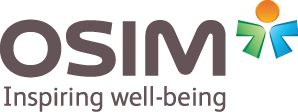6 Simple Ways to Recover from Post-Workout Muscle Soreness
Ever endured painful muscle ache after a strenuous activity? Whether you’re running a marathon or working out for the first time in your life, it is normal to feel this discomfort.
Muscle soreness is a common result of physical activity that stresses the muscle tissue beyond what it is accustomed to, such as a new exercise regime or an intense workout.
Luckily, here are 6 simple ways to recover from muscle soreness so you can get back into your regime and daily routine as soon as possible.
1. Drink loads of water to replace fluids

When you sweat, you lose bodily fluid. Dehydration is one of the factors that aggravate muscle soreness, which makes the pain even more agonizing. So, drink up after you exercise to help speed up the recovery process!
In particular, endurance athletes like marathon runners, rowers, and race car drivers need to drink even more water because they perspire profusely during intensive activity. Remember that water supports every metabolic function and nutrient transfer in the body so drinking plenty of water can improve overall body function.
2. Reach for that protein shake

There is a practical reason why fitness buffs load up on protein shakes. After a tough workout, your muscles become depleted and damaged. Shakes filled with protein, especially whey protein, help to significantly reduce muscle soreness. Protein fuels your body with energy and goes into the muscles for optimal repair and recovery.
Although regular milk is a good source of protein, it might not be as effective in muscle recovery. As milk contains the slow-digesting protein casein, it takes about seven hours for the body to absorb it while whey protein only takes as little as 20 to 30 minutes. The faster your body absorbs the protein, the quicker the muscle recovery.
Tip: Drink your protein shake right after your workout because your muscles are most receptive to nutrient intake immediately after an intense activity.
3. Massage away the muscle soreness
Delayed onset muscle soreness (DOMS), which is the pain and stiffness that you feel in your muscles about six to eight hours after a strenuous activity, can be agonizing. Depending on the extent and intensity of the pain, this may hinder you from going about your daily routine. Even walking could be a problem!
Thankfully, multiple studies have found out that getting a massage is one quick way to relieve muscle soreness. Apart from relaxing your muscles, it also aids in blood circulation in your body, which can help to heal the microtrauma in your muscles.
You could schedule a massage session but if you’re looking for convenience and an equally relaxing massage in the privacy and comfort of your own home, your best bet would be getting a massage chair. For those who work out regularly, you can complete your cool-down with a half-hour session on the massage chair after you’ve taken a relaxing shower.
4. Take an ice bath
Immersing your entire body in an ice bath or cold water for 15 to 20 minutes after intense exercise can reduce swelling and soreness.
While many are on the fence as to whether ice or hot water is better, some experts do agree that ice water is still a better option. Although a hot bath may feel more relaxing and can help relieve pain mildly, ice bath should be your preferred choice to prevent further muscle damage and to speed up the healing process.
Tip: If you don’t have a bathtub, soothe your muscles by placing ice in a waterproof bag, wrapped in a towel and place it on your sore spots.
5. Bring on that basket of tart cherries!

This sour fruit is rarely in the spotlight, but in fact the tart cherry is a superstar in muscle recovery.
The antioxidant compounds found in tart cherries called anthocyanins can help to reduce muscle inflammation resulting from intensive workouts. In general, the darker the cherry’s colour, the higher the anthocyanin content. So, on your next trip to the grocery, stock up on tart cherries, which you can snack on after your workout.
Tip: You could even mix cherry juice into your post-workout recovery drink, use fresh tart cherries as a topping for your yogurt or add them to your main dish!
6. Sleep your pain away

When you’re asleep, the growth hormone is naturally released and it can improve tissue growth and muscle recovery. Your resting body doesn’t use as much energy during sleep, hence allowing your body to break down the food you have consumed during the day and encourage muscle recovery.
Tip: Anywhere around eight hours is good enough for optimal muscle recovery, quickly easing muscle soreness.

